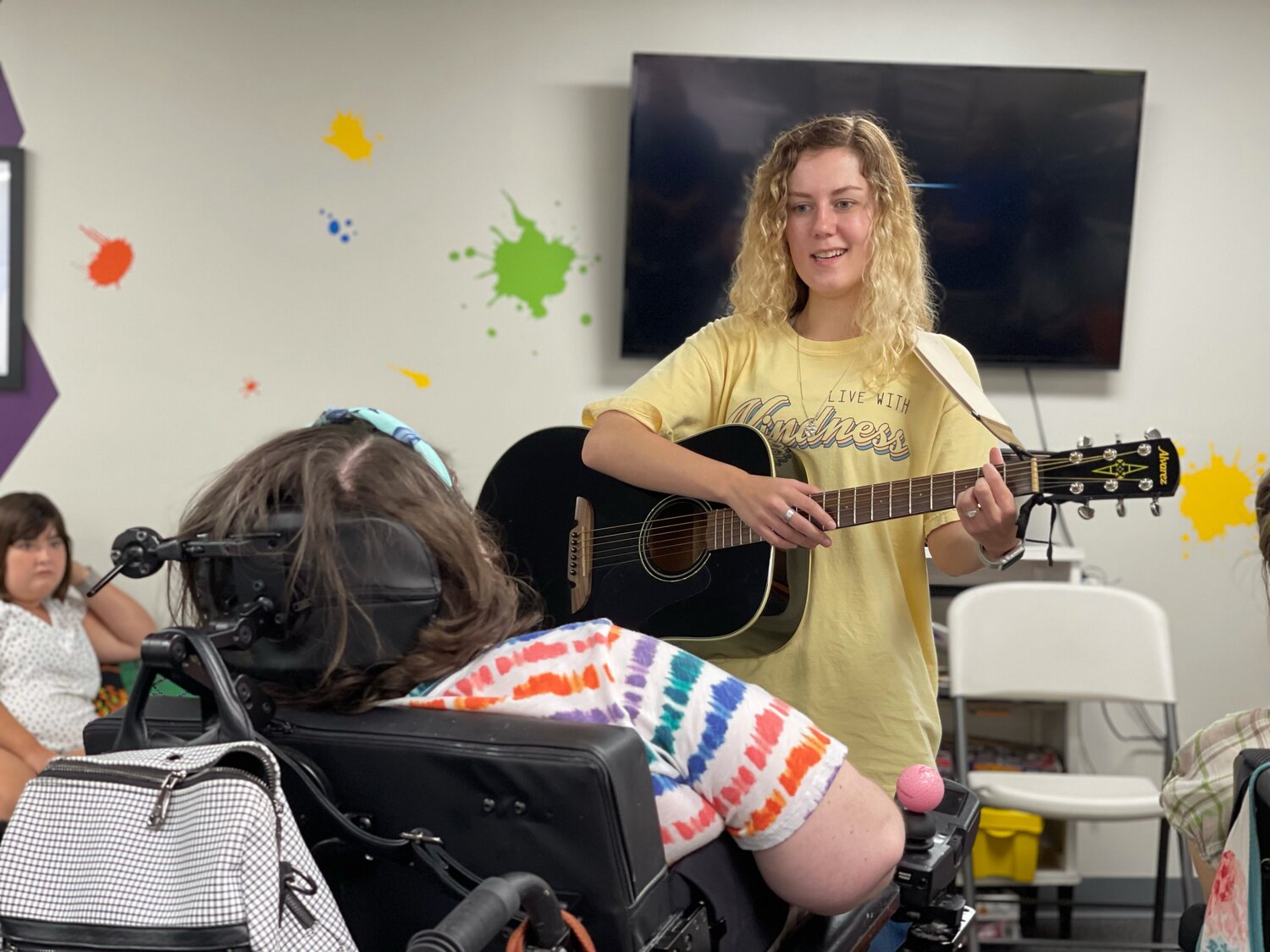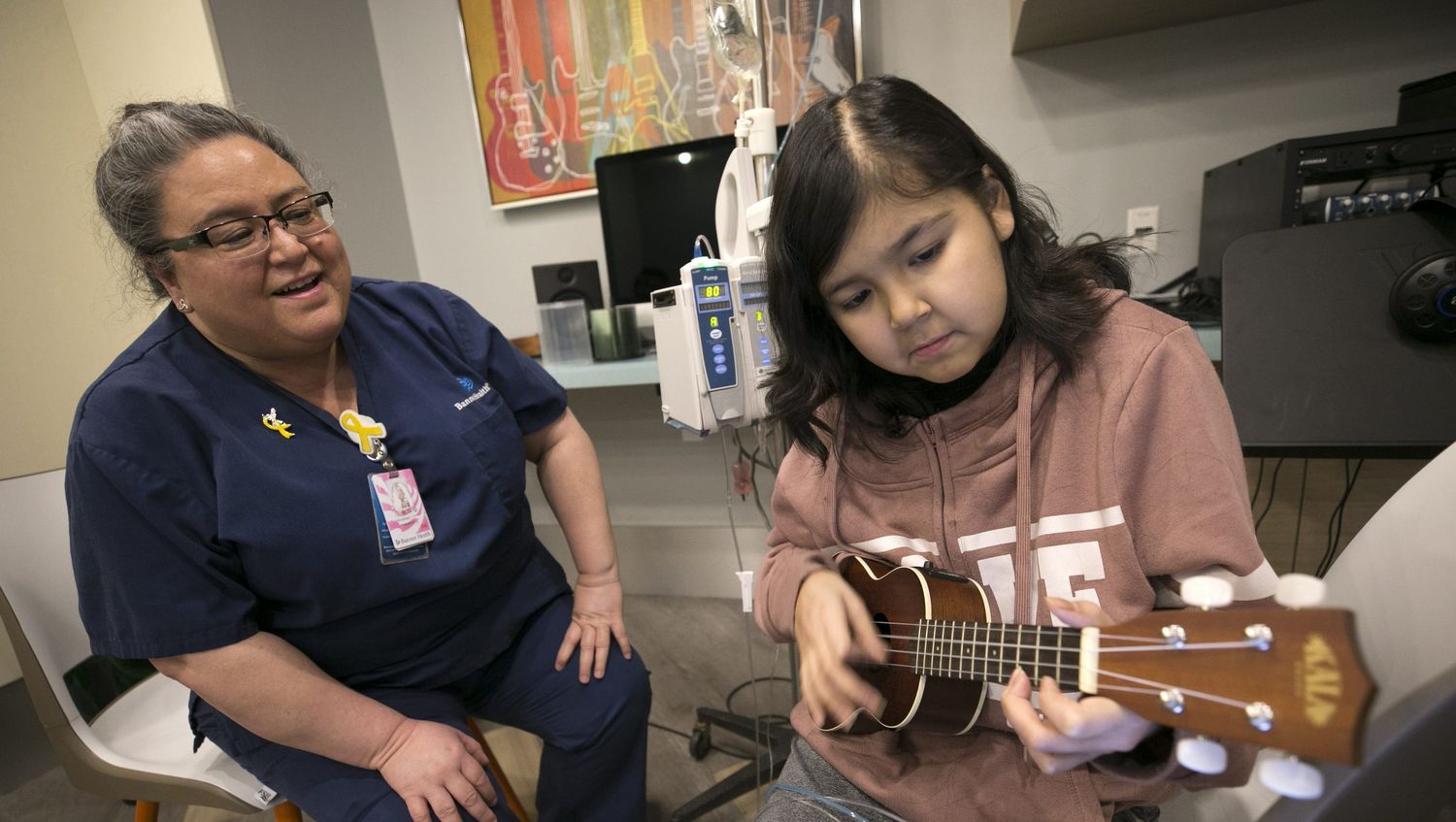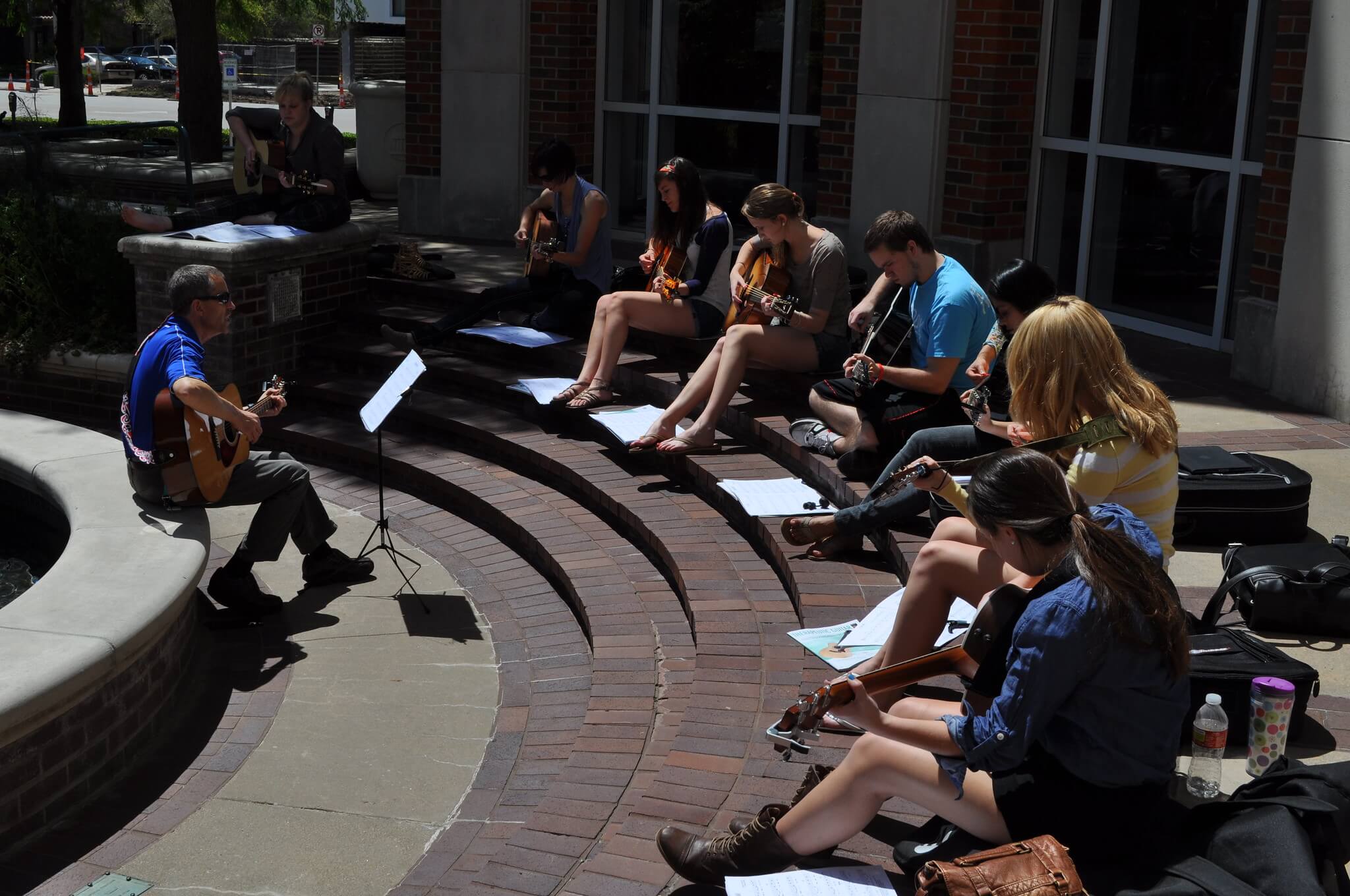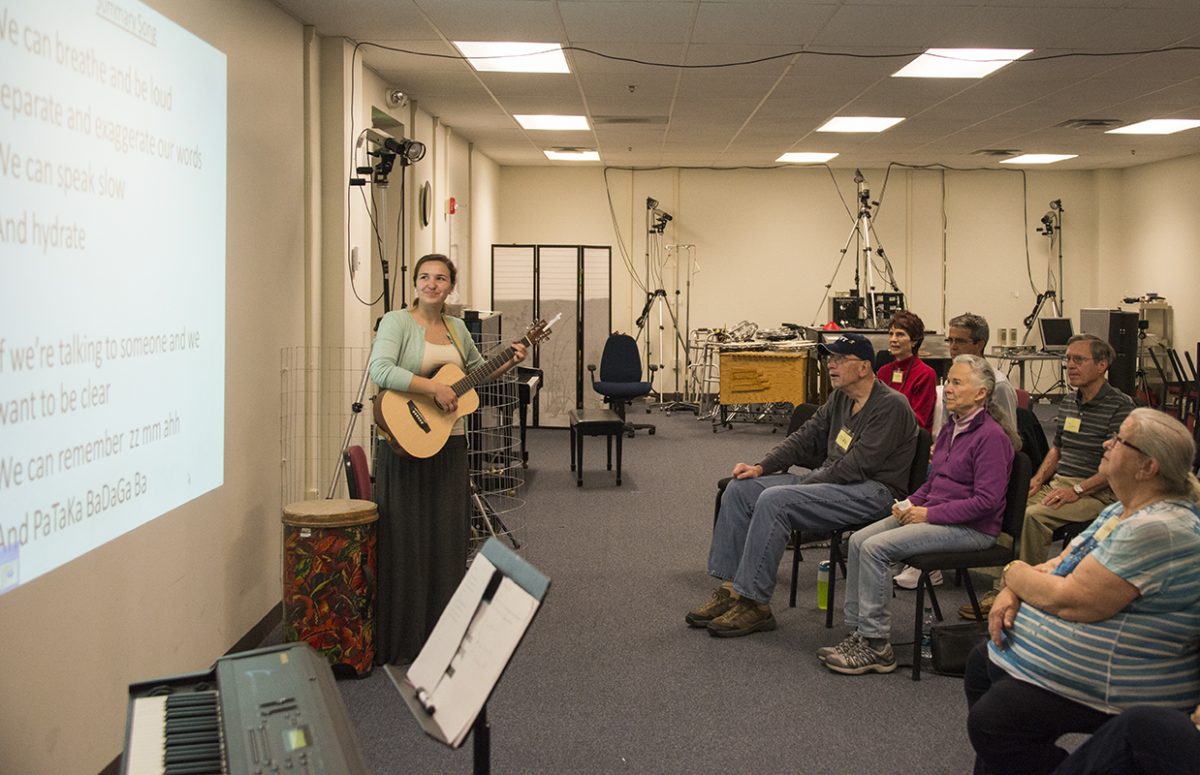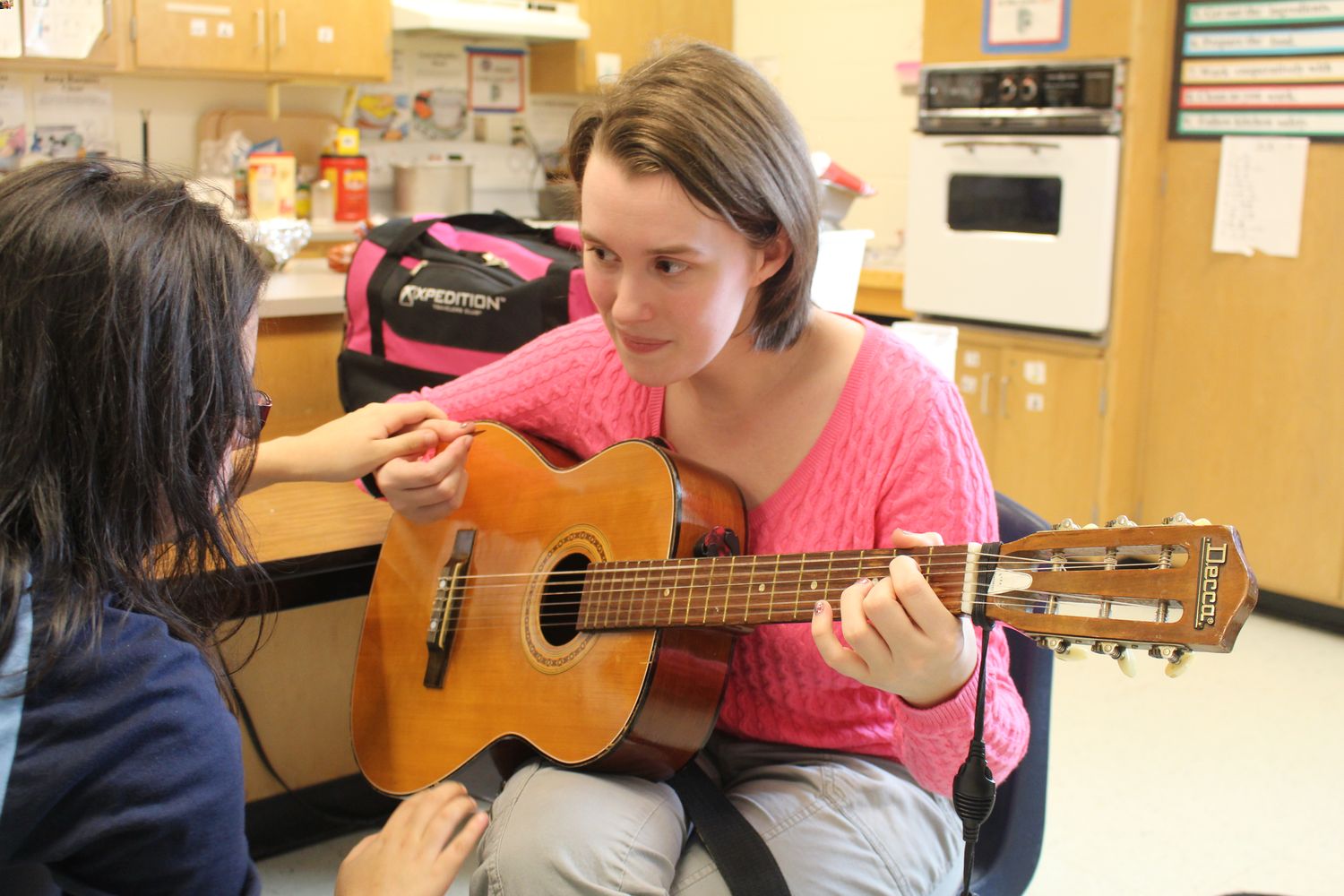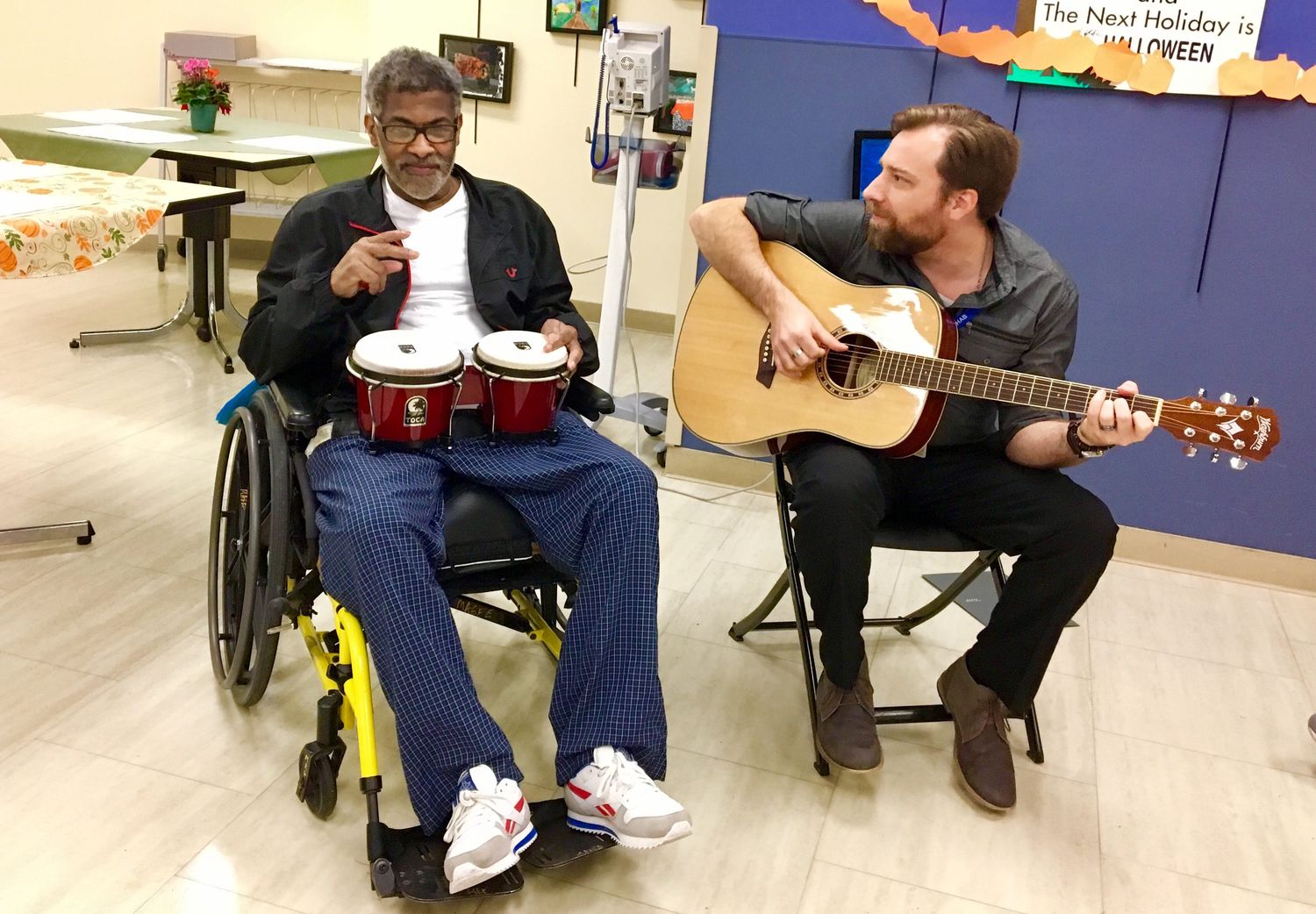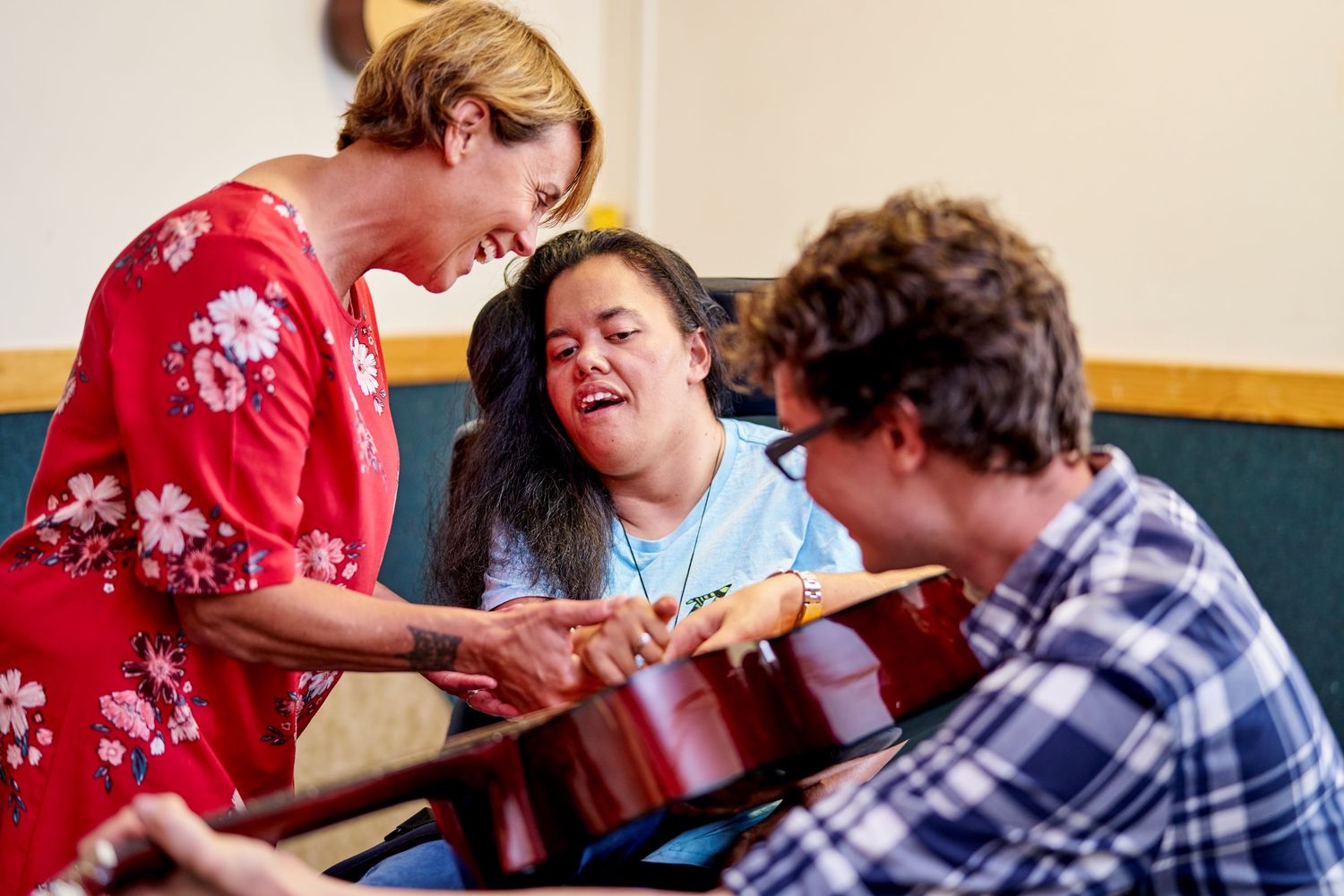Home>Events & Info>Music Therapy>What Is Music Therapy Speech
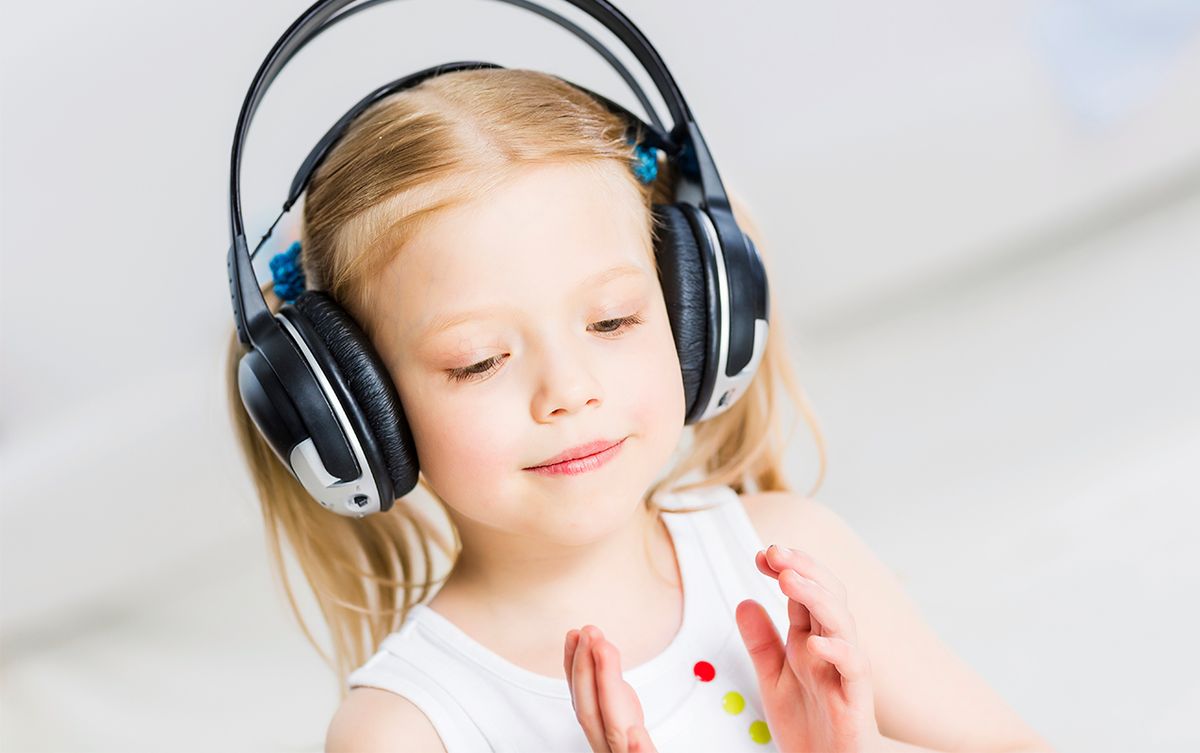

Music Therapy
What Is Music Therapy Speech
Published: February 1, 2024
Discover the power of music therapy for speech improvement. Learn how music therapy can be used to enhance communication skills and overcome speech challenges.
(Many of the links in this article redirect to a specific reviewed product. Your purchase of these products through affiliate links helps to generate commission for AudioLover.com, at no extra cost. Learn more)
Table of Contents
- Introduction
- Definition of Music Therapy
- The Role of Music in Therapy
- Benefits of Music Therapy
- Techniques Used in Music Therapy
- How Music Therapy Can Help Patients with Speech Difficulties
- Case Studies: Successful Applications of Music Therapy in Speech Therapy
- Challenges and Limitations of Music Therapy in Speech Therapy
- Conclusion
Introduction
Music has a unique way of touching our emotions, evoking memories, and connecting with our souls. It has the power to heal, uplift, and inspire. In recent years, the therapeutic benefits of music have been increasingly recognized, leading to the emergence of a specialized field known as music therapy. Music therapy encompasses the use of music, in various forms, to improve the physical, emotional, cognitive, and social well-being of individuals.
Music therapy finds its roots in ancient civilizations, where music was employed to promote healing and well-being. Today, it is a recognized and evidence-based practice utilized by trained professionals in healthcare settings, schools, and rehabilitation centers, among others. The field of music therapy has expanded to encompass various sub-disciplines, one of which is music therapy for speech.
Speech difficulties can significantly impact an individual’s quality of life, affecting their ability to communicate effectively and engage in social interactions. Traditional speech therapy techniques have long been employed to address these challenges. However, music therapy provides an innovative and alternative approach that can enhance the effectiveness of speech therapy and unlock new possibilities for individuals seeking to improve their speech abilities.
In this article, we will delve into the realm of music therapy for speech. We will explore the definition of music therapy, the role of music in therapy, the benefits of music therapy, the techniques used, and how music therapy can help patients with speech difficulties. We will also examine case studies that highlight successful applications of music therapy in speech therapy. Along the way, we will discuss the challenges and limitations of music therapy in speech therapy and offer a comprehensive understanding of the profound impact that music therapy can have on speech-related goals.
Definition of Music Therapy
Music therapy can be defined as a therapeutic discipline that harnesses the power of music to address physical, emotional, cognitive, and social challenges. It is a client-centered approach that utilizes music and musical interventions to achieve specific therapeutic goals and objectives. Music therapy is delivered by trained and certified music therapists who possess a deep understanding of both music and therapeutic techniques.
Music therapists work with individuals of all ages and across various populations, including children with developmental disabilities, adults with neurologic disorders, and individuals with mental health conditions. The therapeutic process involves the strategic use of music, such as singing, listening, playing instruments, and improvisation, to facilitate changes in behavior, emotions, and cognitive functioning.
Central to the practice of music therapy is the therapeutic relationship between the music therapist and the client. The music therapist creates a safe and supportive environment where the client can freely express themselves through music. By using music as a medium of communication, the therapist can assess the client’s needs, strengths, and challenges and develop personalized interventions that align with their goals.
Music therapy is a holistic approach that recognizes the interconnectedness of the mind, body, and soul. It acknowledges the power of music to bypass cognitive barriers and reach deep within the individual, promoting self-awareness, self-expression, and emotional well-being. The therapeutic process may also involve the active participation of the client’s family or caregivers, as they can provide valuable support and encourage progress outside of the therapy sessions.
It is important to note that music therapy is distinct from music education or recreational music. While music education focuses on teaching musical skills and knowledge, and recreational music focuses on leisure and enjoyment, music therapy is purposefully designed to address specific therapeutic goals. It is a therapeutic modality that requires specialized training, expertise, and an understanding of human psychology, physiology, and the therapeutic use of music.
The Role of Music in Therapy
Music holds a unique place in the field of therapy due to its profound impact on the human brain and emotions. Music has the power to evoke memories, elicit emotions, and stimulate the release of neurotransmitters associated with pleasure and well-being. In the context of therapy, music serves as a powerful tool that can facilitate therapeutic progress and support the achievement of therapeutic goals.
One of the key roles of music in therapy is its ability to create a safe and supportive environment. Music has a calming effect on the nervous system, reducing anxiety and promoting relaxation. This relaxed state allows individuals to feel more at ease and open to the therapeutic process. The rhythmic and melodic elements in music can also help establish a predictable structure, providing a sense of stability and security.
Music can also serve as a means of self-expression when words may be insufficient. For individuals struggling with verbal communication, music offers an alternative channel for expressing their thoughts, emotions, and experiences. Through music, individuals can convey their deepest emotions, explore different aspects of their identity, and gain a sense of empowerment and agency.
In therapy, music can act as a catalyst for emotional release and catharsis. The melodies, harmonies, and lyrics in music can resonate with the listener’s inner experiences and validate their emotions. This validation can bring about a sense of relief, emotional release, and the opportunity for healing and growth.
Moreover, music has the ability to enhance cognitive functioning and memory. Studies have shown that certain types of music can stimulate brain areas involved in memory processing, which can be particularly beneficial for individuals with cognitive impairments or neurological conditions. Similarly, rhythm-based activities in music therapy can improve motor coordination and help individuals develop or regain physical skills.
Music also plays a significant role in promoting social interaction and connecting individuals in therapy. Group music therapy sessions create a sense of community and belonging, fostering social connections and mutual support. Music can serve as a bridge between individuals, allowing them to communicate and connect on a deeper level, regardless of language barriers or differences in ability.
The role of music in therapy extends beyond the therapeutic session itself. Individuals can carry the experiences and emotions evoked by music into their daily lives, using music as a coping mechanism and a source of inspiration. This integration of music into their daily routine can reinforce the therapeutic progress made in the sessions and provide continued support and encouragement.
In summary, music plays a multifaceted role in therapy by creating a safe environment, facilitating self-expression, promoting emotional release, enhancing cognitive functioning, fostering social interaction, and providing ongoing support. Through its unique qualities and therapeutic potential, music harnesses the power to profoundly impact the therapy process and support individuals in their journey of healing and growth.
Benefits of Music Therapy
Music therapy offers a wide range of benefits for individuals of all ages and across various populations. The therapeutic use of music can positively impact physical, emotional, cognitive, and social well-being. Let’s explore some of the key benefits of music therapy:
- Emotional & Psychological Benefits: Music has a powerful influence on our emotions. Music therapy can help individuals explore and process their emotions, providing a cathartic outlet for expression. It can also support emotional regulation, decrease anxiety and stress, improve mood, and increase self-esteem and confidence.
- Physical Benefits: Music therapy can have a positive impact on physical health. Rhythmic music and movement-based interventions can improve motor coordination, increase range of motion, and enhance muscle control and strength. It can also support pain management and relaxation, helping to reduce muscle tension and promote overall physical well-being.
- Cognitive Benefits: Music engages various cognitive processes, including memory, attention, and problem-solving. In music therapy, structured activities and exercises can improve cognitive functioning, enhance auditory processing skills, and support memory recall. It can also aid in cognitive rehabilitation for individuals with brain injuries or neurodegenerative disorders.
- Social & Communication Benefits: Music has a remarkable ability to foster social connections and facilitate communication. Group music therapy sessions provide opportunities for individuals to interact, engage in shared experiences, and develop social skills. Music therapy can also improve communication skills, including speech and language development, for individuals with communication disorders or delays.
- Stress Reduction & Relaxation: Music therapy promotes relaxation and stress reduction through soothing melodies, calming rhythms, and the release of feel-good neurotransmitters in the brain. It can help individuals unwind, improve sleep quality, and manage the effects of chronic stress or trauma.
- Psychosocial & Spiritual Well-being: Music therapy addresses the psychosocial and spiritual aspects of an individual’s well-being. It fosters a sense of self-identity, self-expression, and personal growth. Music can also tap into spiritual experiences, providing comfort and solace during challenging times.
It is important to note that the benefits of music therapy are highly individualized and dependent on the specific goals and needs of each person. The skilled music therapist tailors interventions to meet the unique requirements of their clients, ensuring the most effective outcomes.
Overall, music therapy offers a holistic and comprehensive approach that promotes wellness, stimulates development, and enhances the overall quality of life for individuals of all ages and abilities.
Techniques Used in Music Therapy
Music therapy employs a variety of techniques to achieve therapeutic goals and facilitate positive outcomes. These techniques are carefully selected and tailored to meet the specific needs and preferences of the individuals receiving therapy. Here are some common techniques used in music therapy:
- Music Listening: Listening to carefully selected music can have profound therapeutic effects. Music therapists utilize various genres, melodies, and rhythms to evoke specific emotions or promote relaxation. Active music listening exercises can enhance mood regulation, evoke memories, and support emotional expression and exploration.
- Songwriting and Lyric Analysis: Writing and analyzing song lyrics can be a powerful tool for self-reflection and self-expression. Songwriting allows individuals to express their thoughts, emotions, and experiences in a creative and meaningful way. Lyric analysis involves examining the meaning and messages within existing songs, allowing individuals to relate to the lyrics and explore their personal connections.
- Singing: Singing is a versatile technique used in music therapy. It promotes vocal expression, breath control, and speech development. Singing can also enhance emotional expression, provide a sense of joy and wellbeing, and foster social interaction in group settings.
- Instrument Playing: Playing musical instruments engages both physical and cognitive abilities. Music therapists incorporate various instruments, such as drums, guitars, pianos, and percussion instruments, to provide opportunities for self-expression, motor skill development, and creative improvisation. Instrument playing can also support cognitive functioning, including memory, attention, and problem-solving.
- Musical Improvisation: Improvisation allows individuals to spontaneously create and explore musical ideas without the constraints of a pre-determined structure or composition. It encourages self-expression, fosters creativity, and encourages individuals to take risks and explore new possibilities. Musical improvisation can also enhance communication skills, promote emotional expression, and support the development of personal identity.
- Movement to Music: Movement-based interventions involve using music as a catalyst for physical movement. Dance, rhythmic movement, and structured movement exercises can improve motor coordination, balance, and body awareness. Movement to music provides a multisensory experience that integrates cognitive, motor, and emotional processes.
- Music-assisted Relaxation: This technique uses slow, soothing music to induce a state of deep relaxation. Music therapists guide individuals through relaxation exercises, incorporating breathing techniques, progressive muscle relaxation, and guided imagery. Music-assisted relaxation can reduce anxiety, promote stress reduction, and improve overall well-being.
These are just a few examples of the techniques used in music therapy. Each session is thoughtfully planned and adapted to the unique needs and goals of the individual. The music therapist’s expertise and knowledge enable them to select and combine techniques to create a therapeutic experience that best supports the individual’s growth, development, and healing.
How Music Therapy Can Help Patients with Speech Difficulties
For individuals with speech difficulties, music therapy offers a creative and effective approach to address communication challenges. The power of music can be harnessed to improve speech production, enhance language skills, and foster overall speech development. Here are some ways in which music therapy can benefit patients with speech difficulties:
- Rhythm and Timing: Music has inherent rhythmic patterns that can support and enhance speech production. By incorporating rhythmic elements into music therapy interventions, such as tapping along to a beat or clapping to a rhythm, individuals can improve their timing and coordination of speech. The rhythmic structure of music provides a framework that enables individuals to pace their speech more effectively.
- Melodic Intonation Therapy: Melodic Intonation Therapy (MIT) utilizes the melodic and rhythmic components of music to facilitate speech production in individuals with non-fluent aphasia or apraxia of speech. This technique involves using musical melodies and rhythms to support the initiation and production of speech sounds and words. The melodic contour of music can help individuals with speech difficulties access and stimulate the language production areas of the brain.
- Articulation and Pronunciation: Music therapy techniques can be employed to target specific speech sounds and improve articulation and pronunciation skills. Through repetitive vocal exercises, tongue twisters set to music, and sound drills, individuals can practice and refine their ability to produce accurate speech sounds. The musical elements provide structure and repetition, making the learning process engaging and enjoyable.
- Social Communication Skills: Music therapy creates a supportive and interactive environment that encourages social interaction and communication. Group music therapy sessions provide opportunities for individuals with speech difficulties to practice and develop social communication skills. Singing together, engaging in rhythmic activities, and participating in music-based conversations can enhance turn-taking, listening skills, and overall social communication abilities.
- Stress Reduction: Speech difficulties can often be accompanied by anxiety and stress, which further impact speech production. Music therapy can help reduce stress and anxiety levels through relaxation techniques and enjoyable musical experiences. By creating a calm and supportive environment, music therapy can alleviate the stress associated with speech difficulties and create a space for improved speech production and communication.
It is important to note that music therapy for speech difficulties is individualized and tailored to each person’s unique needs and goals. The music therapist works closely with the individual to develop personalized interventions that address specific areas of difficulty and promote speech development. Through the creative use of music, individuals can improve their speech production, enhance language skills, and gain confidence in their ability to communicate effectively.
Case Studies: Successful Applications of Music Therapy in Speech Therapy
Music therapy has shown promising results in supporting individuals with speech difficulties, as demonstrated by various case studies. These real-life examples highlight the successful applications of music therapy in speech therapy, showcasing the transformative power of music in promoting speech and language development. Let’s explore a few of these case studies:
-
Case Study 1: Emma
Emma, a 7-year-old girl with childhood apraxia of speech, struggled with articulation and motor coordination. In music therapy sessions, her music therapist incorporated Melodic Intonation Therapy (MIT) techniques, using simple melodies and rhythmic patterns to facilitate the production of words and phrases. Over time, Emma demonstrated improved speech production, clarity, and confidence in communicating with others.
-
Case Study 2: Michael
Michael, a 45-year-old stroke survivor, experienced severe aphasia and struggled to find words or form coherent sentences. Through music therapy, his therapist provided structured singing exercises to support his language output. As he sang familiar songs and engaged in lyric analysis, Michael gradually regained his ability to retrieve words and construct sentences. Music therapy became a bridge that helped him rebuild and strengthen his communication skills.
-
Case Study 3: Sarah
Sarah, a 10-year-old with autism spectrum disorder, had difficulty with social communication and pragmatic language skills. In music therapy sessions, her therapist used music-based social stories and structured group activities to target turn-taking, listening, and verbal exchanges. Sarah’s engagement and communication skills improved as she participated in musical games, shared musical experiences, and collaborated with her peers.
-
Case Study 4: David
David, a 30-year-old with Parkinson’s disease, experienced difficulty with speech volume and articulation due to reduced muscle control. In music therapy, his therapist utilized vocal exercises and rhythmic techniques to support vocal projection and clarity. By incorporating music and rhythmic cues, David was able to improve his vocal strength and precision, making his speech more intelligible.
These case studies provide a glimpse into the diverse range of individuals who have benefited from music therapy in speech therapy. Each case demonstrates the transformative impact of using music as a therapeutic tool to address speech difficulties. Through personalized and targeted interventions, music therapy has helped individuals overcome barriers, improve speech production, enhance language skills, and regain confidence in their ability to communicate effectively.
It is important to note that these case studies represent specific individuals and their unique circumstances. The success of music therapy in speech therapy can vary depending on various factors, including the severity and nature of the speech difficulty, the individual’s readiness and motivation, and the expertise of the music therapist. However, these case studies highlight the potential of music therapy as a valuable and impactful approach in supporting speech and language development.
Challenges and Limitations of Music Therapy in Speech Therapy
While music therapy has demonstrated numerous benefits in supporting individuals with speech difficulties, it is important to acknowledge the challenges and limitations that may be encountered. These considerations contribute to a comprehensive understanding of the field and inform the best practices in music therapy for speech. Here are some of the challenges and limitations associated with music therapy in the context of speech therapy:
- Generalization of Skills: One challenge is the transfer of skills learned in music therapy sessions to everyday speech situations. While individuals may demonstrate improvements in speech production during music therapy, it may not always generalize to other contexts. It is essential for the music therapist to work collaboratively with individuals and their caregivers to facilitate the transfer of acquired skills to real-life communication settings.
- Individual Variability: Each individual with speech difficulties is unique, and what works for one person may not work as effectively for another. It is crucial for music therapists to tailor interventions to meet the specific needs, strengths, and goals of each individual. This personalized approach ensures that the therapy is targeted and meaningful for the person receiving it.
- Evidence and Research: Although music therapy has been widely used and recognized as a valuable tool in speech therapy, further research is needed to provide a stronger evidence base for its effectiveness. More rigorous studies, including randomized controlled trials, can enhance the understanding of the specific ways in which music therapy promotes speech and language development.
- Access and Availability: Access to music therapy services may pose a challenge for individuals with speech difficulties, as services may not be readily available or affordable in certain areas. Additionally, the availability of qualified and trained music therapists specializing in speech therapy may vary, limiting the options for individuals seeking this particular form of therapy.
- Motivation and Engagement: Motivating individuals to actively engage in music therapy sessions may present a challenge, particularly for those who may have limited interest or difficulty with verbal communication. The music therapist must employ creative approaches to maintain motivation and ensure active participation throughout the therapy process.
- Collaboration with Other Professionals: Collaboration between music therapists and other professionals, such as speech-language pathologists, is essential for comprehensive and integrated care. While music therapy can complement traditional speech therapy approaches, effective communication and collaboration between professionals is crucial in order to maximize the benefits for the individual.
Despite these challenges and limitations, music therapy continues to be recognized as a valuable and effective approach in supporting individuals with speech difficulties. By acknowledging and addressing these considerations, music therapists can provide targeted and individualized interventions, working in collaboration with clients, caregivers, and other professionals to maximize the benefits of music therapy in speech therapy.
Conclusion
Music therapy has emerged as a powerful and innovative approach in the realm of speech therapy, harnessing the therapeutic potential of music to support individuals with speech difficulties. Through the use of various techniques, music therapy offers a unique and effective way to enhance speech production, improve language skills, and foster communication abilities.
By incorporating rhythm, melody, and structured interventions, such as Melodic Intonation Therapy, music therapy helps individuals with speech difficulties improve their timing, articulation, and motor coordination. The engaging and enjoyable nature of music motivates individuals to actively participate in therapy and facilitates the transfer of skills to real-life communication situations.
Music therapy also promotes emotional expression, social interaction, and relaxation, addressing the underlying psychological and social aspects associated with speech difficulties. The power of music transcends language barriers, allowing individuals to communicate and connect on a deeper level, regardless of their verbal abilities.
While music therapy in speech therapy has demonstrated numerous benefits, it is important to acknowledge the challenges and limitations that may arise. The generalization of skills, individual variability, access to services, research evidence, motivation, and collaboration are all areas that require attention in order to ensure the best outcomes and maximize the impact of music therapy.
Despite these challenges, music therapy continues to be a valuable and transformative tool for individuals with speech difficulties. The success stories and case studies highlight the profound impact that music therapy can have on speech and language development, providing hope and inspiration for individuals seeking to improve their communication abilities.
In conclusion, music therapy offers a holistic and person-centered approach in addressing speech difficulties. It taps into the innate power of music to create a therapeutic experience that supports speech production, enhances language skills, and fosters overall communication abilities. Through the collaboration of music therapists, individuals, caregivers, and other professionals, music therapy can unlock new possibilities and empower individuals on their journey towards improved speech and a richer quality of life.


